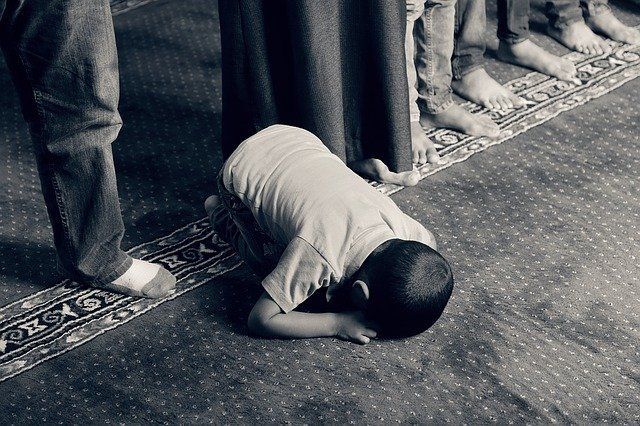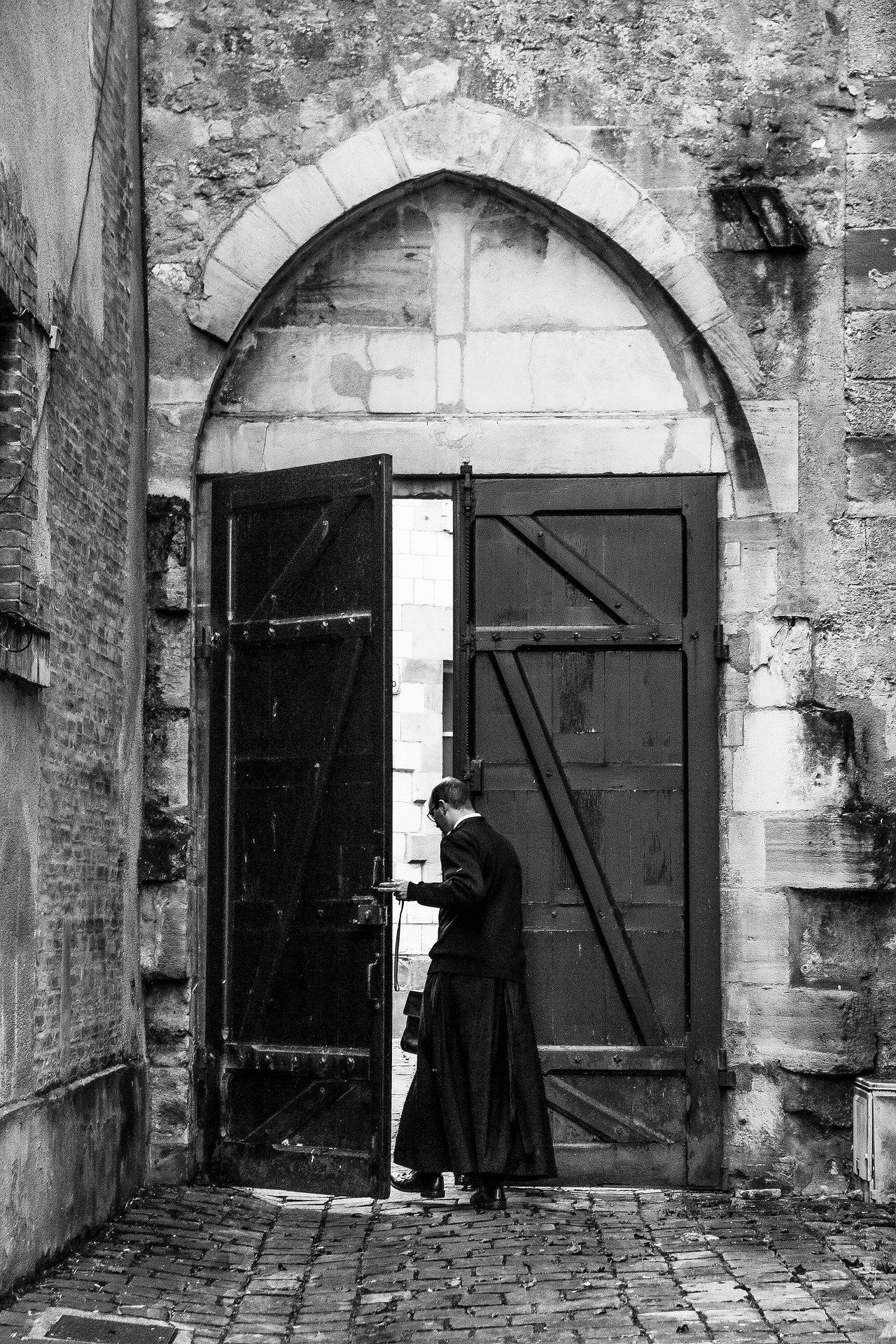
Speaking to the predominately Muslim nation of Kazakhstan, twelve days after the horrors of 11 September 2001, the Pope declared: ‘”There is one God”. The Apostle proclaims before all else the absolute oneness of God.
‘This is a truth which Christians inherited from the children of Israel and which they share with Muslims: it is faith in the one God, “Lord of heaven and earth” (Luke 10:21), almighty and merciful.
‘In the name of this one God, I turn to the people of deep and ancient religious traditions, the people of Kazakhstan”.’
Logic of love?
He then presented a false gospel. Building a ‘civilization of love’, he said, is the task of Christians and Muslims. His exact words were as follows.
‘This “logic of love” is what he [Jesus] holds out to us, asking us to live it above all through generosity to those in need. It is a logic which can bring together Christians and Muslims, and commit them to work together for the “civilization of love”.
‘It is a logic which overcomes all the cunning of this world and allows us to make true friends who will welcome us “into the eternal dwelling-places” (Luke 16:9), into the homeland of heaven.’

His final prayer was for a partnership between Christians and Muslims: ‘in this celebration we want to pray for Kazakhstan and its inhabitants, so that this vast nation, with all its ethnic, cultural and religious variety, will grow stronger in justice, solidarity and peace. May it progress on the basis in particular of cooperation between Christians and Muslims, committed day by day, side by side, in the effort to fulfil God’s will’.
Approval
In spite of the catastrophic events of 11 September, the Pope has affirmed the Vatican’s policy of approval towards Islam.
Under the heading ‘The Church’s relationship with the Muslims’ he declares that ‘the plan of salvation also includes those who acknowledge the Creator, in the first place amongst whom are the Muslims; these profess to hold the faith of Abraham, and together with us they adore the one, merciful God, mankind’s judge on the last day’.
Rome thus believes that the One God of Holy Scripture is also the God of Islam. It also esteems the moral life of Islam: ‘The Church has also a high regard for the Muslims. They worship God, who is one, living and subsistent, merciful and almighty, the Creator of heaven and earth, who has also spoken to men.

‘They strive to submit themselves without reserve to the hidden decrees of God, just as Abraham submitted himself to God’s plan, whose faith Muslims eagerly link to their own.
‘Although not acknowledging him as God, they venerate Jesus as a prophet, his virgin Mother they also honor, and even at times devotedly invoke. Further, they await the day of judgment and the reward of God following the resurrection of the dead.
‘For this reason they highly esteem an upright life and worship God, especially by way of prayer, alms-deeds and fasting.’
Fundamental change
It is clear that the Church of Rome’s estimation of Islam has undergone a fundamental change. The biblical commandment not to venerate any strange god has been broken by Rome in order to give Muslims credit for holding to the faith of Abraham.
Patently, this novel reassessment of the Muslim faith represents a major shift in the Vatican’s political policy. These official statements are carefully constructed. They aim at engendering a new mood of respectful rapprochement and mutual understanding between the papacy and Islam.

They show that Rome is propounding a new interfaith-ecumenicity which seeks to embrace Islam within a new international religious community, a community in which Rome enjoys priority as founder and senior partner.
What Islam rejects
Christians believe in one Godhead in which exist three persons. Islam rejects this concept as blasphemous.
The Qur’an declares: ‘Certainly they disbelieve who say: Surely Allah is the third (person) of the three; and there is no god but the one God, and if they desist not from what they say, a painful chastisement shall befall those among them who disbelieve’ (Surah 5:73).
The Bible proclaims Christ’s sacrificial death on the cross as the believer’s substitute: ‘we have redemption through his blood, the forgiveness of sins, according to the riches of his grace’.
Islam passionately rejects the crucifixion of Jesus. The Qur’an declares: ‘And their saying: Surely we have killed the Messiah … the apostle of Allah; and they did not kill him nor did they crucify him, but it appeared to them so…’ (Surah 4:157).
The Bible proclaims Christ as divine, being the brightness of the divine glory and the express image of God. But the Qur’an reduces him to an apostle of Allah: ‘O followers of the Book! … do not speak [lies] against Allah, but [speak] the truth; the Messiah, Isa son of Marium, is only an apostle of Allah’ (Surah 4.171).
But Jesus declared: ‘Before Abraham was, I AM’, and: ‘I and my Father are one’. It is an absurd blasphemy for the Pope to equate the true and living God of the Bible with the god of Islam.
Fighting for Allah
John explains the purpose of the God of Scripture: ‘These things have I written unto you that believe on the name of the Son of God; that ye may know that ye have eternal life, and that ye may believe on the name of the Son of God’ (1 John 5:13).
This is totally different from the god of Islam who ordains fighting, war, and punishment by crucifixion and amputation. The following is just a sample of the Qur’an’s idea of fighting for Allah: ‘kill them wherever you find them, and drive them out from whence they drove you out … if they do fight you, then slay them; such is the recompense of the unbelievers’ (Surah 2.191).
Again: ‘let those fight in the way of Allah, who sell this world’s life for the hereafter; and whoever fights in the way of Allah, then be he slain or be he victorious, we shall grant him a mighty reward’ (Surah 4.74).
And again: ‘The punishment of those who wage war against Allah and his apostle and strive to make mischief in the land is only this, that they should be murdered or crucified or their hands and their feet should be cut off… ; this shall be as a disgrace for them in this world, and in the hereafter they shall have a grievous chastisement’ (Surah 5.33); ‘Those who believe fight in the way of Allah’ (Surah 8.39).
Love your enemies
It will be objected that the Old Testament also contains many injunctions to fight against and destroy the enemies of God’s people. That is true, but Christianity interprets the Old Testament through the eyes of the New.
The warfare of the Old Testament, historical and God-ordained as it was, is a pattern for the Christian’s conflict with spiritual darkness, not human enemies.
Concerning the latter, Christ commands: ‘Love ye your enemies, and do good, and lend, hoping for nothing again; and your reward shall be great, and ye shall be the children of the Highest: for he is kind unto the unthankful and to the evil. Be ye therefore merciful, as your Father also is merciful’ (Luke 6:35-36).
While many individual Muslims deplore atrocities committed in the name of Islam, it cannot be denied that these atrocities are justified and encouraged by Islamic teaching. Even the most moderate form of Islam is incompatible with biblical truth.
Rome’s teaching changed
Nonetheless, after condemning Islam for six centuries, and Crusading against the Muslims for two, the Vatican is now welcoming and affirming the religion of Mohammed. How can the Roman Catholic Church espouse a religion that rejects the Trinity, the divinity of the Lord Jesus Christ, and his gospel?
In 1095, Pope Urban II called for a ‘War of the Cross’, or a Crusade, to retake the holy lands from the Muslim Turks. Several versions of his speech at the end of a Church Council have survived.
We cannot be sure of the exact words used, but the heart and mind of papal power in those centuries is seen in these sentences: ‘All who die by the way, whether by land or by sea, or in battle against the pagans, shall have immediate remission of sins. This I grant them through the power of God with which I am invested’.
The present Pope and his Church uphold the teaching that the definitions of all Roman Pontiffs pertaining to faith or morals are ‘irreformable by their very nature’.
Since the present Roman Pontiff has proclaimed Muslims acceptable as believers then, by that same proclamation, Urban II and the whole line of Crusading Popes have been proven damnable heretics, since they condemned Muslims and fought against them!
Clearly, the Roman Catholic Church still plays the chameleon — for since Vatican Council II, she has embraced Islam, calling praiseworthy that which she once denounced as evil and worthy of destruction by war.



